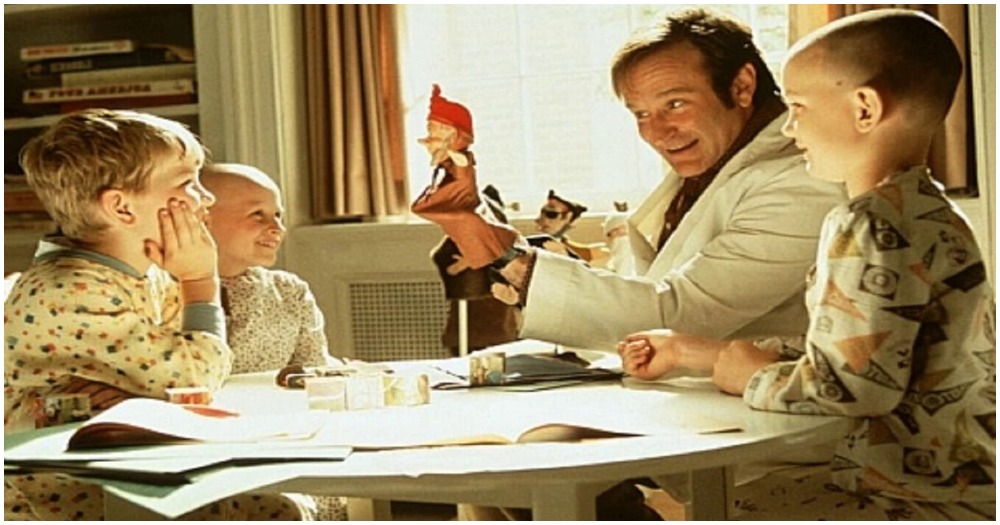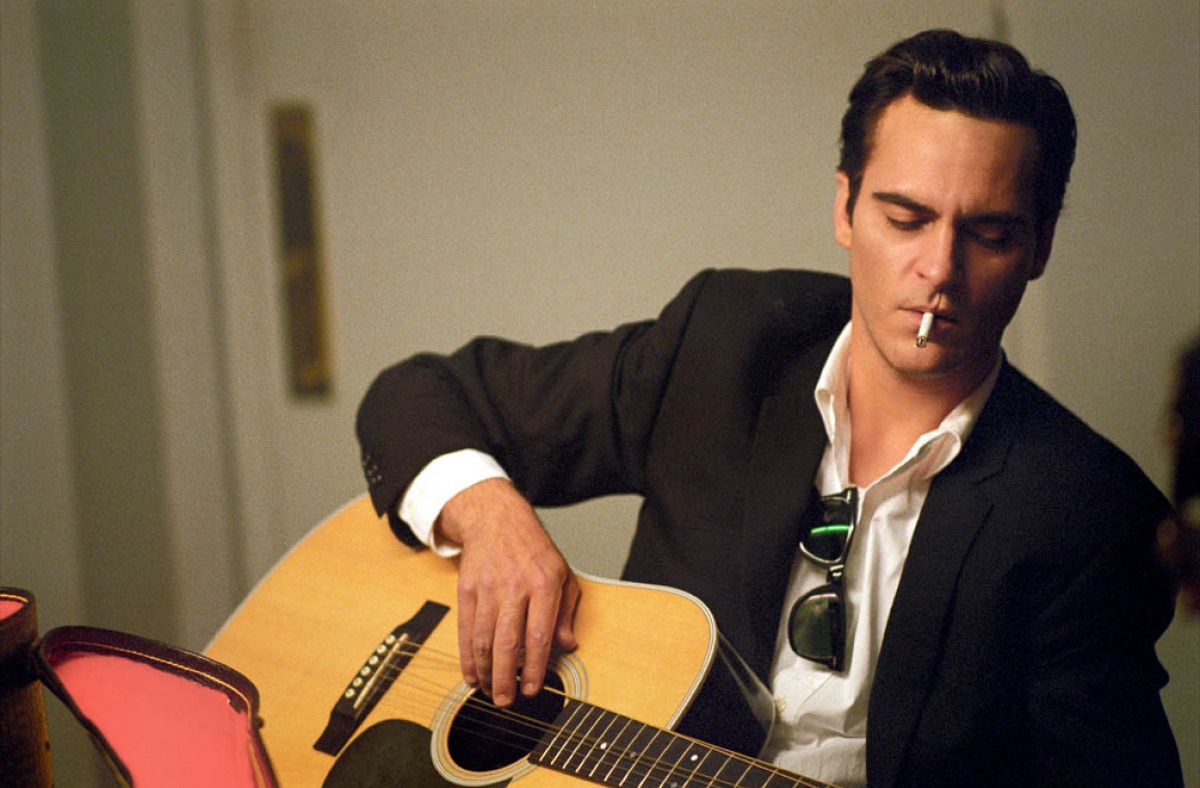
6. Saving Jessica Lynch

You probably remember the story of Jessica Lynch, right? The American soldier who was captured and kept as a prisoner of war in Iraq, and whose rescue later became the subject of a made for TV movie on NBC called Saving Jessica Lynch? Well, while Lynch was taken the prisoner, and she was a soldier in Iraq, and she was ultimately rescued, that’s about where the parallels end between fact and fiction. And Lynch herself would be the first one to tell you that. See, Lynch was less than pleased with how both she and the rescue mission were portrayed, with enormous movie liberties being taken to heighten the tension and excitement level of how things played out.
It turns out, according to Lynch, that the Iraqis had tried (unsuccessfully) to give her back to the Americans earlier. And when the rescue operation found her in the hospital where she was being held and treated, there were precisely zero Iraqi soldiers there. No one resisted, and the entire “rescue” operation amounted to a group of Americans strolling into a hospital and taking Lynch out of there without anyone saying a word against their efforts.
Now, don’t get us wrong, Lynch absolutely views the soldiers who came to get her as her heroes. It’s never fun to be a prisoner of war, even if your captivity amounts to being in a hospital bed with no enemy soldiers anywhere to be found. News accounts and the film played up her own heroism, as well, which bothered Lynch even more, since she didn’t want to be held up as a symbol, particularly when she insisted that everything being said about her was grossly overstated. She didn’t ask to be a hero and doesn’t want to be portrayed as a hero. But, really, when has that ever stopped Hollywood before?
7. Winnie

Nelson Mandela is widely regarded as one of the greatest and most iconic men of the 20th century. It’s not really much of a surprise, then, that someone in Hollywood would decide that, particularly after several successful films about Nelson himself, it’d be a good idea to tell the story of his wife, Winnie. Winnie Mandela is an extraordinary woman in her own right, from taking on an enormous amount of social work even before she met her future husband, to later holding several powerful positions in the South African government. She wasn’t immune to controversy, but she’s most definitely a woman worthy of having her story told.
Only, she really didn’t want to have her story told. So you can imagine her irritation with the film Winnie, which starred Jennifer Hudson as the titular real-life woman. So against the film was Winnie Mandela, that she tried to stop it in its tracks before it was released. And you can see her point, really. As she said, she’s still alive and well, and while she’s a public figure, it’s got to be kind of annoying to hear that a movie studio is going to make a movie about you but not even bother to get either your permission or your input.
Mandela had originally asked to simply see the script before the film went into production, but for some bizarre reason, the studio refused. In response to a threat of legal action, one of the producers said the screenplay was “well researched and [written] without any interference.” That, given in response to the woman the script was about, is kind of like meeting someone and assuring them you know more about their life than they do, because you heard stories from very reliable sources. We’re guessing, at the end of the day, Mandela was still pissed but at least slightly satisfied when the film absolutely bombed with critics.
8. Sully

It’s a scientific fact that everybody loves Tom Hanks, and the man he portrays in 2016’s Sully is a bona fide hero. Capt. Chesley Sullenberger III was the pilot who pulled off the Miracle on the Hudson, so named because it was one of the most insane emergency landings ever attempted, and it went off without a hitch. The film shows us a riveting account of the near-disaster, then details the National Transportation Safety Board hearings in the aftermath—during that the heroic pilot was railroaded by antagonistic investigators who are convinced that the plane could’ve been landed safely at one of two airports. Sully’s name is finally cleared after a drawn-out battle and multiple simulations, and the evil investigators are forced to admit that they really just hate heroism.
Okay, so we’re exaggerating, but not much—and if the film’s plot had been true to the actual events, it would have been over in half an hour. There was never any significant doubt as to whether Sully made the right call. The first set of simulations, shown in the film to constitute damning evidence that the emergency landing was unnecessary, showed just the opposite, and the final report praised both Sully and the crew for their heroism. The real NTSB investigators were none too happy about this, accusing director Clint Eastwood of making manufactured villains out of them for the sake of dramatic tension and stating their hope that the film wouldn’t cause real pilots to expect such unfair treatment. Now-retired lead investigator Robert Benzon complained that the film had hurt his reputation while putting its level of realism “somewhere between Sharknado 2 and Sharknado 3.” His words, not ours.
9. Walk the Line

Walk the Line is considered to be among the better biopics of the modern era, largely due to its powerhouse acting. Joaquin Phoenix channels Johnny Cash to an impressive degree and Reese Witherspoon won the Academy Award for Best Actress for her portrayal of June Carter Cash. But Kathy Cash, Johnny’s daughter by first wife Vivian Liberto Distin, was so upset by the film’s portrayal of her mother that she walked out of a family only screening five separate times. Apparently, this is the number of times Vivian appears onscreen.
Cash, who is played in the film by a young Kerris Dorsey, objected to her mother coming off as a complete psycho who hates Johnny’s career and whose defining characteristic is “shrill.” She says this is untrue: “She loved his career and was proud of him until he started taking drugs and stopped coming home,” she said in an interview. Distin died of lung cancer shortly before the film’s release. Ironically, Johnny pledged his faithfulness to her in the song that gives the film about his love affair with another woman its title. Johnny Cash was a legend, but nobody ever accused him of being a sweetheart.
10. Notorious

Aside from her fling with the late Notorious B.I.G., rapper Lil’ Kim is mostly remembered for being brash, short, and half-naked. When the B.I.G. Biopic Notorious was released in 2009, those who knew the legendary MC were mostly pleased—but not Kim. She began trashing the film before she had even seen it, saying that the screenplay was inaccurate and that she felt like she was being “played” when she was interviewed by the screenwriters—and it only got worse once she got around to watching the movie.
Kim complained that her relationship with B.I.G. came off as shallow and only based on sex, and the actress who played her (Naturi Naughton) was “terrible.” She went on to accuse B.I.G.’s mother Voletta Wallace and ex-wife Faith Evans of undue influence, prompting responses ranging from “that’s just sad” (Evans) to “get a life” (Wallace). Not everybody took her to task, however. Sean Combs told MTV that Kim had “every right to feel that way,” and agreed that she was more than B.I.G.’s hookup buddy. Combs could always set the record straight by making his own biopic, but considering his production style, this would mean simply re-releasing Notorious in its entirety with a different title.
